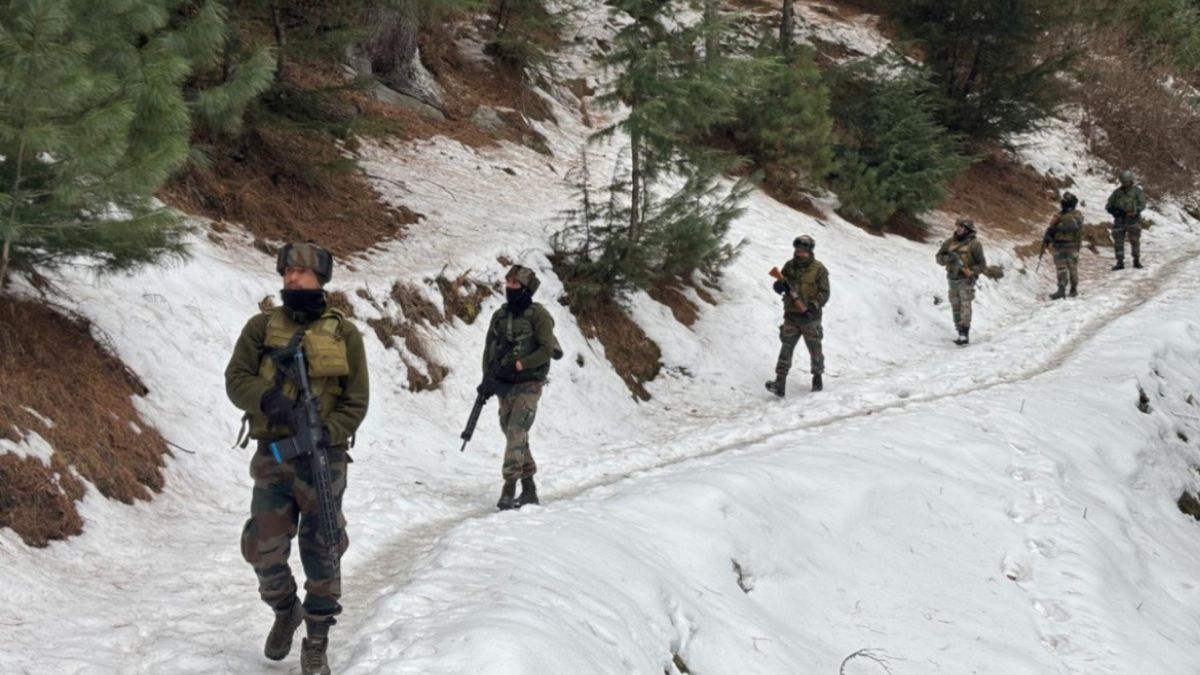Security forces on Monday (July 20) resumed a combing operation in the rugged forests of Kishtwar district in Jammu and Kashmir after a brief exchange of fire with suspected Hizbul Mujahideen terrorists on Sunday. The encounter, which took place in the Khankoo forest between Dachhan and Nagseni, involved high-value targets reportedly carrying bounties of Rs 30 lakh each.
The terrorists are believed to have escaped after the initial gunfight, prompting the deployment of reinforcements. Drones, sniffer dogs, and expanded troop presence are now being used in the densely forested area as troops attempt to block any possible escape.
Why is the operation in Kishtwar significant?
Kishtwar, a remote and mountainous district in the Jammu region, has seen an uptick in terrorist activity over the past few years. Sunday’s operation was launched by Indian Army and police units based on intelligence suggesting the presence of top Hizbul Mujahideen operatives. The involvement of terrorists with high rewards on their heads points to the strategic importance of the group’s presence in the area.
Security forces called off the initial assault by nightfall on Sunday but resumed their search on Monday morning with aerial surveillance and tracking teams. Officials stated that the terrain’s thickness and elevation make it difficult to maintain continuous visual contact, but security grids have been established to cut off retreat.
What is the current status of Hizbul Mujahideen?
Hizbul Mujahideen remains one of the most organised insurgent groups operating in Jammu and Kashmir, although its operational capacity has declined in recent years. Formed in 1989 as the militant wing of Jamaat-e-Islami, it is based in Pakistan-occupied Kashmir and receives backing from Pakistan’s Inter-Services Intelligence (ISI).
Its long-time leader, Syed Salahuddin, continues to operate from Muzaffarabad. The group’s ideological shift from local separatism to pan-Islamist jihadism has marked its trajectory over the past two decades. While the group once claimed thousands of fighters, estimates suggest only a few hundred remain active, mostly in isolated cells across Kashmir. Despite being declared a terrorist organisation by India, the US, the EU, and others, Hizbul continues to operate with apparent impunity in Pakistan.
